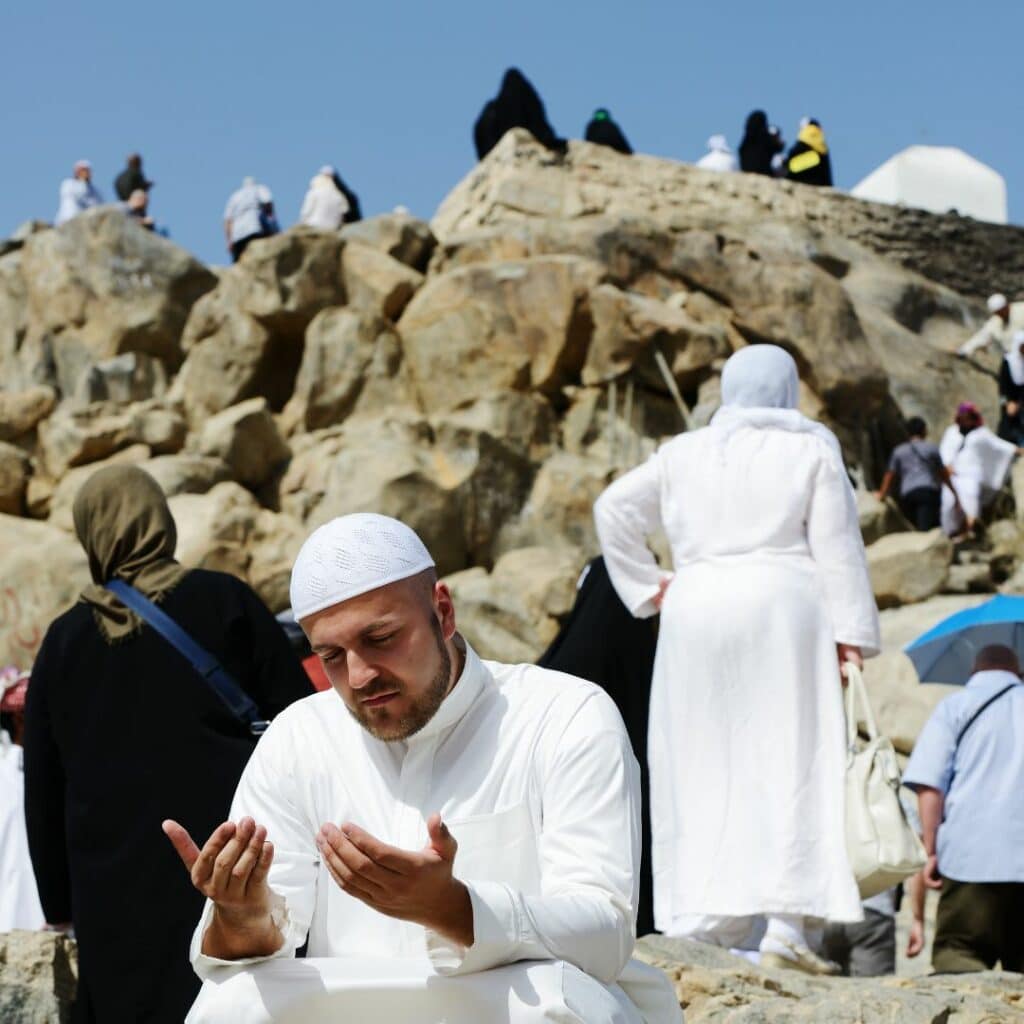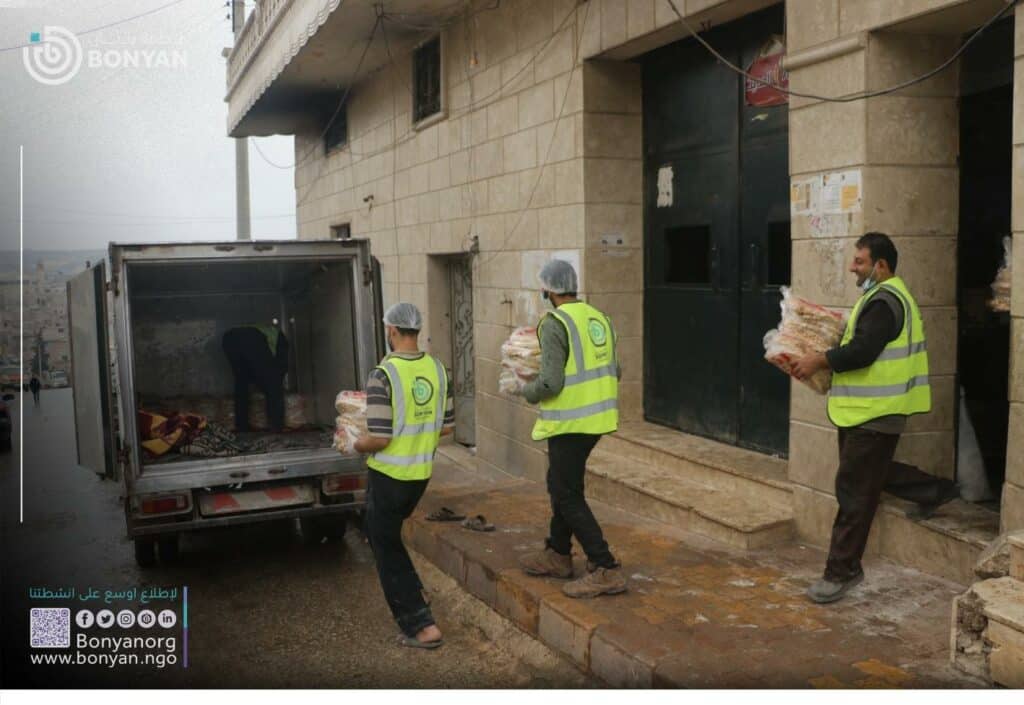Virtues of Dhul Hijjah
The Month of Dhul Hijjah is the last month of the Islamic calendar and one of the four holy months of Islam. This month holds the glory of Islam’s two sacred events: the ten days of Dhul Hijjah – including the Day of Arafah – and Eid Ah-Adha.
Worldwide, Muslims strive to seek the forgiveness and closeness of Allah Almighty. And Allah S.W.T will reward all good deeds.
The Prophet ﷺ said: “There are no days in which righteous deeds are more beloved to Allah than in these (ten) days.” – Abu Dawud.
He ﷺ encourages us Muslims, through this Hadith, to increase our acts of worship, do good deeds to one another, and give a helping hand to our Muslim brothers who are vulnerable and poor.
Allah Takes an Oath by Them
Allah Almighty talked about the holy four months in the Qur’an and the privilege they have apart from all other months of the year. Also, He SWT, showed us the massive value of the first ten days of Dhul Hijjah that He swore by them.
Allah Almighty says in The Qur’an: “By the dawn; And [by] the ten nights.” – Surat Al-Fajr – Verses 1&2.
According to many scholars of the Qur’an, the days mentioned as significant enough for Allah to swear by them are the first ten days of Dhul-Hijjah. Therefore, these days are a blessed time to increase our righteous deeds and acts of worship, devote all our good deeds to Allah, ask for His mercy and forgiveness, do our best to uphold the ties of kinship, enjoy what’s good and forbid what’s evil.
Dhul-Hijjah is a Holy Month
Allah Almighty says: “Indeed, the number of months ordained by Allah is twelve—in Allah’s Record1 since the day He created the heavens and the earth—of which four are sacred. That is the Right Way. So do not wrong one another during these months. And together, fight the polytheists as they fight against you together. And know that Allah is with those mindful ˹of Him˺.” – Surah At-Tawbah – Verse 36.
Dhul Hijjah is a month for worship – Muslims during this holy month refrain from any acts of fighting. Instead, they focus their intention and devotion to grant the satisfaction, forgiveness and mercy of Allah the Most Merciful by performing the most beloved acts of worship to Allah;
- Doing more prayers (Nafila).
- Recite Qur’an more.
- Fasting (these ten days, especially Arafah).
- Giving charities (Sadaqah).
- Perform the virtue of Hajj if they are financially able.
- Do as much Dikker as they can (Tahleel, Takbeer, Tahmeed).
“There are no days that are greater before Allah or in which good deeds are more beloved to Him, than these ten days, so recite a great deal of tahleel, takbeer, and tahmeed during them.” – Ahmad.
One Year of Fasting in a Single Day
The month of Dhul Hijjah has Blessed ten days – including The Day of Arafah – fasting these days equal fasting a whole year, and every act of worship is rewarded 80 times more.
“There are no days more beloved to Allah that He be worshiped in them than the ten days of Dhul Hijjah. Each day of fasting in it is equivalent to the fast of an entire year. And each night standing in prayer is equivalent to standing in prayer on the Night of Power.” – Tirmidhi.
The Day of Arafah
Allah has allocated many blessings for this day for all Muslims, whether they are at The Mountain of Arafah, performing the pilgrimage of Hajj, or if they were fasting the day and worship Allah at home.
Allah Almighty has guaranteed His servants great rewards, and one of the greatest rewards is that Allah Almighty erase all His servants’ sins from the year before and the year after – And that is for all His servants – anywhere they were.
The Prophet ﷺ said: “Fasting on the day of Arafah is an expiation (of sins) for two years, the year preceding it and the year following it.” – Ibn Majah.
The Prophet ﷺ also narrated that Allah Almighty said: “Look at my servants disshelved, dustied, and fatigued. They have come from every far-off corner of the earth. They have not witnessed My mercy and they have not witnessed My punishment. And I do not see a day in which more people are saved from the Hellfire than the Day of Arafah.” – Haythami.

Tips to Do in These Blessed Days
Muslims around the world strive to gain the closeness and forgiveness of Allah Almighty during these blessed days.
So they increase their worship with devotion and complete submission to Allah, The Most Greatest to attain His mercy and hope to have all their sins and wrong-doings forgiven.
Here are some of the most favorable acts of worship that please Allah Almighty during these days.
Read the Quran
Reading Qur’an – The Words of Allah – grants us great rewards by reciting the verses of Qura’an; for every single letter you read, you will receive a good deed (Hasanah).
The Prophet ﷺ said: “Read the Qur’an, for verily it will come on the Day of Standing as an intercessor for its companions.” – Muslim.
Therefore, invest your time during these ten days to recite the Qur’an and understand its verses better, which will lead to success in this life and the hereafter.
And remember, reading Qura’an in other days will grant us a reward that is multiplied by 10. So imagine the rewards that we will get for reading Qur’an during these days!
The Prophet ﷺ said: “Whoever reads a letter from the book of Allah (SWT), he will have a reward. And that reward will be multiplied by 10. I am not saying that Alif, Laam, Meem is a letter, rather I am saying that “Alif” is a letter, “laam” is a letter, and “meem” is a letter.” – Tirmidhi.
Increase in Nawafil
Allah Subhanahu Wa Ta’ala loves to see His servants striving and seeking His Mercy Subhanahu. One of the worship acts is to do more prayers – we speak to Allah as we pray – and there is no more honored deed than praying to Allah the Most Glory.
Praying Nafila (Extra prayers) is not an obligatory act of worship; therefore, who pray Nafil is well rewarded by Allah Almighty, and these rewards are much more when done during these blessed ten days.
Increase in Dhikr
The Prophet ﷺ said: ”There are no days that are greater before Allah or in which good deeds are more beloved to Him, than these ten days, so recite a great deal of tahleel, takbeer, and tahmeed during them.” – Ahmad.
- Tahmeed: Al-hamdu lilLah (All praises be to God)
- Tahleel: Laa iLaha ill-Allah (There is no god but Allah)
- Tasbeeh: Subhaan-Allah (Glory be to God)
The takbeer can also be recited as follows:
“Allahu akbar, Allahu akbar, laa iLaaha ill-Allah, Allahu akbar, wa lilLaah hil-hamd.” – meaning –
Allah is Most Great, Allah is Most Great, there is no god but Allah; Allah is Most Great, and to Allah be praise.
Istighfaar
Istighfaar means to seek forgiveness from Allah for negligence and disobedience by means of both the tongue and the heart. Reciting Istighfaar will grant you great benefits and rewards from Allah.
The Messenger of Allah (ﷺ) said: “If anyone constantly seeks pardon (from Allah), Allah will appoint for him a way out of every distress and a relief from every anxiety, and will provide sustenance for him from where he expects not.” – Abu Dawud.
- Istighfar removes Stress and Anxiety.
- Istighfar opens the door of mercy.
- Istighfar Provides Sustenance.
- An Eraser of Sins.
- Your Dua (Supplication) is Accepted.
Fasting
In a Hadith Qudsi, Allah says: “All the deeds of the son of Adam are for him, except fasting, which is for Me, and I shall reward for it.” – Bukhari.
Fasting is the only good deed which Allah Almighty gives its rewards Himself Subhanahu. And fasting on the Day of Arafah, on which Allah perfected His Religion.
The Prophet said: “Fasting the day of `Arafah expiates the sins of two years: the past one and the coming one.” – Muslim.

Donate to Charity
Giving Sadaqah is one of the best acts of worship as well. Many verses in the Qur’an clarify the value of giving charity to the poor and vulnerable Muslims in the community.
And the Prophet ﷺ also talked about giving Sadaqah many times. He ﷺ has encouraged His Companions to donate Sadaqah whenever they can, especially during these ten days, because the rewards of your Sadaqah or Zakat will be maximized and amplified. Your charity will also aid you on the day of judgment in the hereafter.
The Prophet ﷺ said: “The believer’s shade on the Day of Resurrection will be their charity.” – Tirmidhi.
FAQs
What is so Special about Dhul Hijjah?
It is the month that holds the best ten days of all days in the year, as These ten days hold the most sacred events in Islam; the Hajj pilgrimage and the festival of the holy sacrifice, Qurbani Eid ul-Adha. Allah Almighty has sworn by them in the Qur’an: “By the dawn; And [by] the ten nights.” – Surah Al-Fajr.
What is so Special about Dhul Hijjah?
It is the month that holds the best ten days of all days in the year, as These ten days hold the most sacred events in Islam; the Hajj pilgrimage and the festival of the holy sacrifice, Qurbani Eid ul-Adha. Allah Almighty has sworn by them in the Qur’an: “By the dawn; And [by] the ten nights.” – Surah Al-Fajr.
What is Dhul Hijjah in Islam?
According to the Islamic calendar, Dhul Hijjah is the twelfth and final month of the year. Dhul Hijjah literally means ‘The month of the pilgrimage’ because Hajj begins on the eighth day of the month.
What are the First 10 Days of Dhul Hijjah?
These ten days are the best days, with no exception. The Messenger of Allah talked about these days, saying: “There are no days on which righteous deeds are more beloved to Allah than these ten days.”_ Bukhari.
What Month is Dhul Hijjah 2023?
It is the last month of the Islamic year.
Resources



